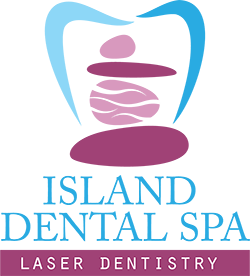Pregnancy Hormones & Oral Health
How Pregnancy & Hormones can Affect Oral Health
Pregnancy Hormones & Oral Health
You probably know that many physical and emotional changes you will experience during pregnancy result from an increase in the levels of certain hormones — the chemicals that regulate many important processes in the body. But what you may not realize is that these hormonal variations can affect your oral health — and usually not for the better. In fact, surges in the female hormones estrogen and progesterone can dilate (expand) the tiny blood vessels in your gums, increasing blood flow. This makes gums more sensitive to the bacteria (and associated toxins) found in the sticky dental plaque that accumulates on teeth every day.
Pregnant women commonly notice that their gums may become red and swollen, and even bleed when they floss or brush their teeth, a condition known as “pregnancy gingivitis.” Similar gum inflammation can result from taking birth control pills that contain a type of synthetic progesterone, or even from the normal hormonal fluctuations of the menstrual cycle.
Another, less common effect of pregnancy hormones on the gums is an overgrowth of gum tissue or small, berry-colored lumps at the gum line or between teeth. These growths are called “pregnancy tumors,” though they are completely benign.
All of the above conditions usually clear up within a few months after giving birth. Still, if you experience gum inflammation, it’s a sign that you need to take extra conscientious care of your teeth and gums during pregnancy.
Why It Matters
Pregnancy hormones don’t cause gingivitis by themselves — the irritants in plaque need to be present first. So if you experience the signs and symptoms mentioned above, you’ll want to redouble your oral hygiene efforts, both for your sake and your baby’s. Untreated gingivitis can progress to a more serious form of gum disease called periodontitis — a bacterial infection that attacks not just the gums but also the tooth-supporting bone beneath. It can eventually cause bone loss, loose teeth and even tooth loss. Some research has even indicated a link between periodontal (gum) diseases and other serious health conditions, such as cardiovascular disease and diabetes.
Pregnant women should also be aware that studies have suggested a link between periodontal (gum) disease and preterm delivery. Although the exact mechanism by which this happens is unclear, evidence suggests that the bacteria in dental plaque can reach the placenta and trigger inflammatory responses. This causes substances to be released into the bloodstream that may in turn start labor prematurely. Preeclampsia, a form of high blood pressure specific to pregnancy, may also be associated with periodontal disease.
What You Can Do
Eat right. Even if pregnancy cravings are driving you to seek out sugar, try to go easy on the sweets. While they offer you and your developing baby virtually nothing in the way of nutrients, they’re the favorite food of disease-causing oral bacteria. If you find you can’t resist sweets, try to eat them only at mealtimes and make sure to brush your teeth afterwards.
Stick to a good oral hygiene routine. Make sure to floss every day and to brush your teeth at least twice per day. If morning (or afternoon or evening) sickness is a problem, don’t brush immediately after throwing up. That’s because the enamel on your teeth, which has been temporarily softened by the acid coming up from your stomach, can now be easily removed. Instead, rinse with a teaspoon of baking soda dissolved in a cup of water (or even plain water) to neutralize the acid. Wait a full hour before brushing your teeth.
Have a dental cleaning and exam. Not only are professional cleanings safe during pregnancy, they’re highly recommended. So if you haven’t been to the dentist in a while, now is a great time to make an appointment. And don’t forget to share the happy news! You teeth can certainly be cleaned and examined — but for other non-emergency dental procedures, it’s probably best to wait.

